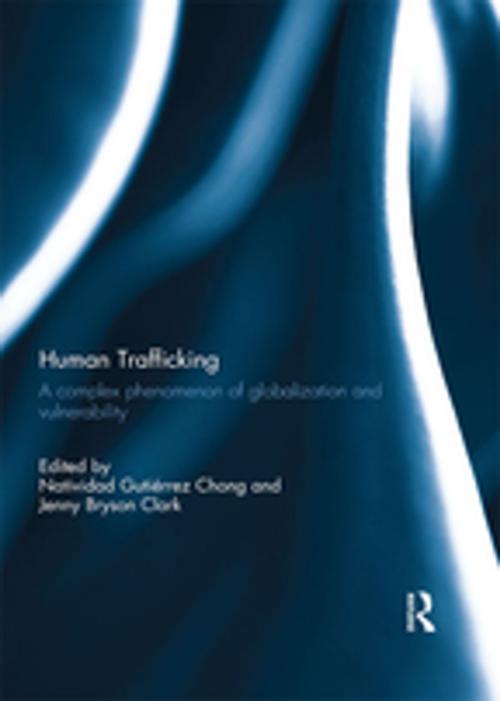Human Trafficking
A Complex Phenomenon of Globalization and Vulnerability
Nonfiction, Social & Cultural Studies, Social Science, Sociology| Author: | ISBN: | 9781317373117 | |
| Publisher: | Taylor and Francis | Publication: | September 13, 2017 |
| Imprint: | Routledge | Language: | English |
| Author: | |
| ISBN: | 9781317373117 |
| Publisher: | Taylor and Francis |
| Publication: | September 13, 2017 |
| Imprint: | Routledge |
| Language: | English |
In the post-Cold War era, economic globalization has resulted in the buying and selling of human beings. Poverty, social instability, lawlessness, gender biases, and ethnic hostility have entrapped millions in the world of modern day slavery, with the result that human trafficking is one of the fastest growing criminal industries in the world. Every year, men, women, and children from across the globe are transported within or across borders for the purpose of forced labor and sexual exploitation. Despite the plethora of journalistic articles written on human trafficking there is a need for more rigorous academic analysis of the phenomenon.
Although groups from many different ideologies have embraced policies to end human trafficking, there are still many gaps and unanswered questions, particularly with regard to the amount of, and nature of the phenomenon. This book provides an insight into the complexity of human trafficking by addressing both how the scope of globalization impacts the sex industry and forced labor, and how vulnerability is a growing cause of human trafficking, affecting traditional diasporic and migratory patterns. This book was originally published as a special issue of the Journal of Intercultural Studies.
In the post-Cold War era, economic globalization has resulted in the buying and selling of human beings. Poverty, social instability, lawlessness, gender biases, and ethnic hostility have entrapped millions in the world of modern day slavery, with the result that human trafficking is one of the fastest growing criminal industries in the world. Every year, men, women, and children from across the globe are transported within or across borders for the purpose of forced labor and sexual exploitation. Despite the plethora of journalistic articles written on human trafficking there is a need for more rigorous academic analysis of the phenomenon.
Although groups from many different ideologies have embraced policies to end human trafficking, there are still many gaps and unanswered questions, particularly with regard to the amount of, and nature of the phenomenon. This book provides an insight into the complexity of human trafficking by addressing both how the scope of globalization impacts the sex industry and forced labor, and how vulnerability is a growing cause of human trafficking, affecting traditional diasporic and migratory patterns. This book was originally published as a special issue of the Journal of Intercultural Studies.















